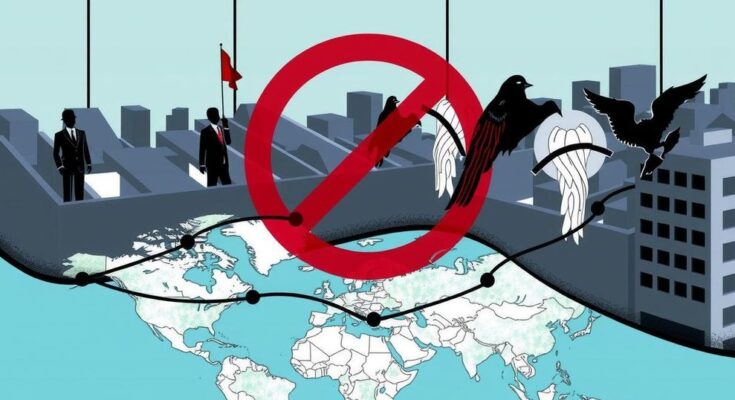COP29, held in Azerbaijan, highlighted the increasing political repression against activists amid disappointing climate commitments. With a surge in political prisoners and civil society silenced, the legitimacy of future climate negotiations is in jeopardy. Experts warn that the trends set by Azerbaijan could undermine the participation of essential voices in combating climate change.
The COP29 climate conference, held in Baku, Azerbaijan, concluded with unsatisfactory outcomes, most notably a lack of sufficient climate finance and concrete plans to phase out fossil fuels. Simultaneously, Azerbaijan continues to imprison over 300 political prisoners, highlighting a significant surge in political repression since the country was chosen to host the conference. The government has intensified its crackdown on civil society, arresting activists and suppressing dissent under a façade of legal action against political misconduct.
As civil society members flee or are detained, the host country’s commitment to genuine climate action remains dubious amidst its support for fossil fuel lobbyists. Experts express concern that this trend of repression sets a harmful precedent for future climate negotiations, as world leaders have increasingly neglected the voices of human rights defenders. Historical context illustrates how authoritarian regimes—such as Egypt and the UAE—have marginalized civic participation in past conferences while promoting their oil interests instead.
Furthermore, Azerbaijan’s oppressive environment hamstrings the small community of environmental advocates, as reiterated by Florian Irminger, President of the Progress & Change Action Lab, who emphasized the stark reality facing activists. The government’s calculated approach to eliminate dissent particularly targets individuals involved in the Climate of Justice Initiative, which aims to document and combat these injustices. The urgent call exists for the UN Framework Convention on Climate Change to enforce international human rights standards during future climate conferences.
The situation surrounding COP29 underscores the detrimental effects of political repression on civic engagement in climate negotiations. Host countries that suppress civil society pose a significant challenge to the representation of diverse perspectives in discussions crucial to combating climate change. Azerbaijan has notably intensified its political crackdown since being selected to host COP29, raising alarms among activists and experts regarding the future of climate action. The ongoing arrests and intimidation of civil society members reveal the extent of authoritarian governance affecting environmental justice movements.
In conclusion, the COP29 experience illustrates the troubling consequences of holding climate conferences in countries where civic space is severely limited. The institutionalized repression against activists in Azerbaijan serves as a growing pattern that threatens the integrity of climate negotiations. Unless there is a fundamental shift in how the UN manages these conferences and prioritizes human rights, the voices essential for climate justice risk being constantly silenced, jeopardizing global climate objectives.
Original Source: www.globalcitizen.org




